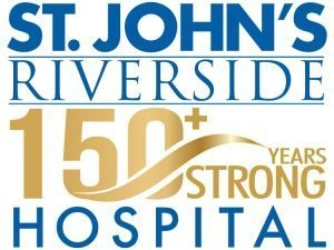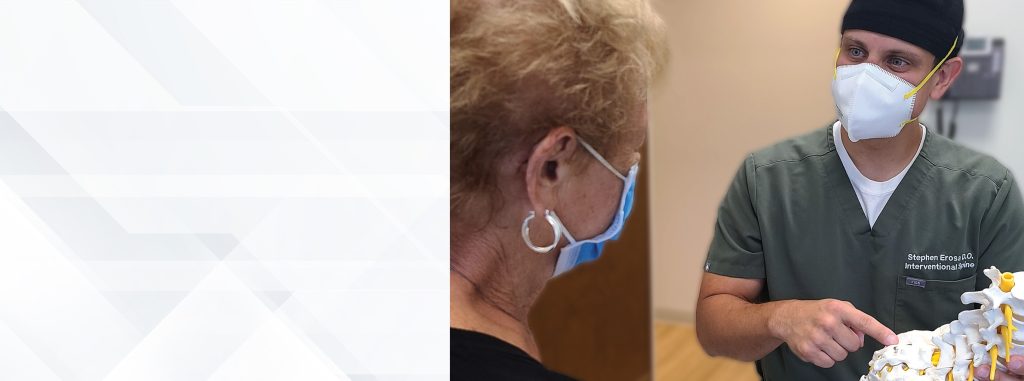What makes the Interventional Spine & Pain Management Center different is that it uses proven new techniques without pharmaceutical intervention, such as injections, radio frequency ablation, and neuromodulation to directly address the source of your pain. In addition, emphasis is placed on rehabilitation, such as physical therapy and home exercise plans, along with procedures to help our patients alleviate their pain and get back to doing the things they love to do.
The Interventional Spine & Pain Management Center leads the pain category in Westchester as the only place to receive some of the treatments we offer.
Our first approach to any pain problem is to be as conservative as possible, and we encourage our patients first to pursue minimally invasive procedures to diagnose the source of their pain and potentially provide long term relief. Part of the diagnostic process may consist of having x-rays, MRIs, or nerve tests to identify the source of your pain. Occasionally, a patient’s diagnosis may require us to refer him/her to an orthopedic or neurosurgeon, psychiatrist, physical therapist, or neurologist for a consultation as we take a comprehensive multidisciplinary approach to pain management. We understand that not all patients’ pain is the same, so we make it a priority to treat each patient individually to create a personalized treatment plan that can help alleviate their pain and improve their overall function and quality-of-life.
Some conditions that interventional pain management techniques commonly treat include:
- Neck pain
- Low back pain
- Thoracic Pain
- Sacroilliac Joint Pain
- Osteoarthritis pain ie Shoulder, Knee, Hip
- Chronic headache
- Chronic Post-Surgical Pain (Hernia Pain, post laminectomy pain syndrome, joint pain)
- Coccydinia
- Complex Regional Pain Syndrome,
- Herniated Disk Pain, ie Sciatica / Radiculopathy
- Cervical and Lumbar Spinal Stenosis
- Chronic Pelvic Pain
Common Treatments Include:
Epidural Steroid injections /Peripheral Nerve Blocks/ Joint injections/ Sympathetic Nerve blocks
Our interventional options include minimally invasive, non-surgical injections to control your pain. These injections are very safe and performed under fluoroscopic (and ultrasound) guidance. They send potent medications around your nerves to relieve pain. These procedures are performed in the spine, to treat “sciatica” or pinched nerves, as outside the spine to alleviate pain from nerve entrapment such as using the above guidance techniques medications can be targeted into joints such as the hip, knee, and SIJ to diagnose and treat chronic inflammatory pain conditions.
Radiofrequency Ablation
Once your pain is diagnosed using diagnostic nerve blocks and if the pain returns, certain patients may be a candidate for radiofrequency ablation. This procedure uses x-ray guidance to place a needle with an electrode around a nerve transmitting pain signals. Then using radio waves the nerve is heated causing an interruption of the pain signal which may provide up to one year of sustained pain relief.
Nueromodulation
The latest innovation in pain management is a type of neuromodulation or Electrical Stimulation similar to a pacemaker device. The first step in the process is a trial. Similar to an epidural steroid injection, a needle is placed into the epidural space and a small wire or lead is placed into the spinal canal. Using various electrical frequencies pain signals are blocked without the use of injectable or oral medications. The trial is worn for 5-7 days. Then the wires are removed in the office. If the trial is successful, > 50% reduction in pain, then it can be permanently implanted.
St. John’s Riverside Hospital has one of only a few doctors in the area that uses DRG, an innovative neuromodulation technique. DRG (Dorsal Root Ganglion) stimulation sends electric stimulation to an area of the spinal cord that can provide targeted therapy to a particular nerve distribution expanding the range of treatment options for patients with difficult to manage pain syndromes.
Kyphoplasty/Vertebropasty
This procedure is utilized for those patients suffering from a spinal compression fracture. Using a needle cement is introduced into the bone of the compression fracture to stabilize the fracture and decrease pain.
Regenerative Medicine
A novel approach to pain management is regenerative medicine using Platelet Rich Plasma and Stem Cells to help promote healing in damaged tissue. Instead of injecting steroids into or around a tendon, a person’s own healing factors can be injected in an effort to promote healing of the damaged tissue. During this procedure, a patient’s blood is collected then using a centrifuge the platelets (containing growth factors) are isolated. The PRP is then injected. This is a cutting-edge procedure that may be an option for patients that are suffering from chronic tendon injuries such as tennis elbow.
Is Interventional Pain Management an Option for You?
These techniques can provide pain relief to improve your quality of life. Interventional Pain Management techniques or a combination of these techniques should be considered as part of a comprehensive pain management plan.
Call (914) 904-4040 for an appointment.
St. John’s Medical Group
Interventional Spine & Pain Center
1022 North Broadway
Yonkers










